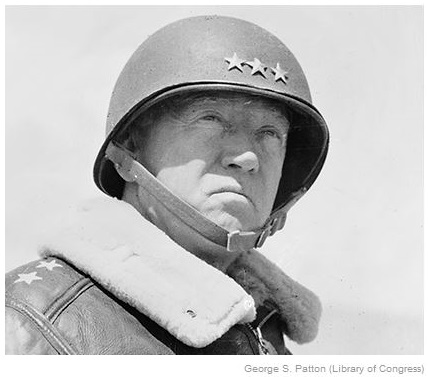From Victor Davis Hanson:
Nearly 70 years ago, the lieutenant general began his advance toward the German border.
Nearly 70 years ago, on Aug. 1, 1944, Lieutenant General George S. Patton took command of the American Third Army in France. For the next 30 days they rolled straight toward the German border.
Patton almost did not get a chance at his summer of glory. After brilliant service in North Africa and Sicily, fellow officers — and his German enemies — considered him the most gifted American field general of his generation. But near the conclusion of his illustrious Sicilian campaign, the volatile Patton slapped two sick GIs in field hospitals, raving that they were shirkers. In truth, both were ill and at least one was suffering from malaria.
Public outrage eventually followed the shameful incidents. As a result, General Dwight D. Eisenhower was forced to put Patton on ice for eleven key months.
Tragically, Patton’s irreplaceable talents would be lost to the Allies in the soon-to-be-stagnant Italian campaign. He also played no real role in the planning of the Normandy campaign. Instead, his former subordinate, the more stable but far less gifted Omar Bradley, assumed direct command under Eisenhower of American armies in France.
In early 1944, a mythical Patton army was used as a deception to fool the Germans into thinking that “Army Group Patton” might still make another major landing at Calais. The Germans apparently found it incomprehensible that the Americans would bench their most audacious general at the very moment when his audacity was most needed.
When Patton’s Third Army finally became operational seven weeks after D-Day, it was supposed to play only a secondary role — guarding the southern flank of the armies of General Bradley and British Field Marshal Bernard Montgomery while securing the Atlantic ports.
Despite having the longest route to the German border, Patton headed east. The Third Army took off in a type of American blitzkrieg not seen since Union General William Tecumseh Sherman’s rapid marches through Georgia and the Carolinas during the Civil War.
Read more: National Review

